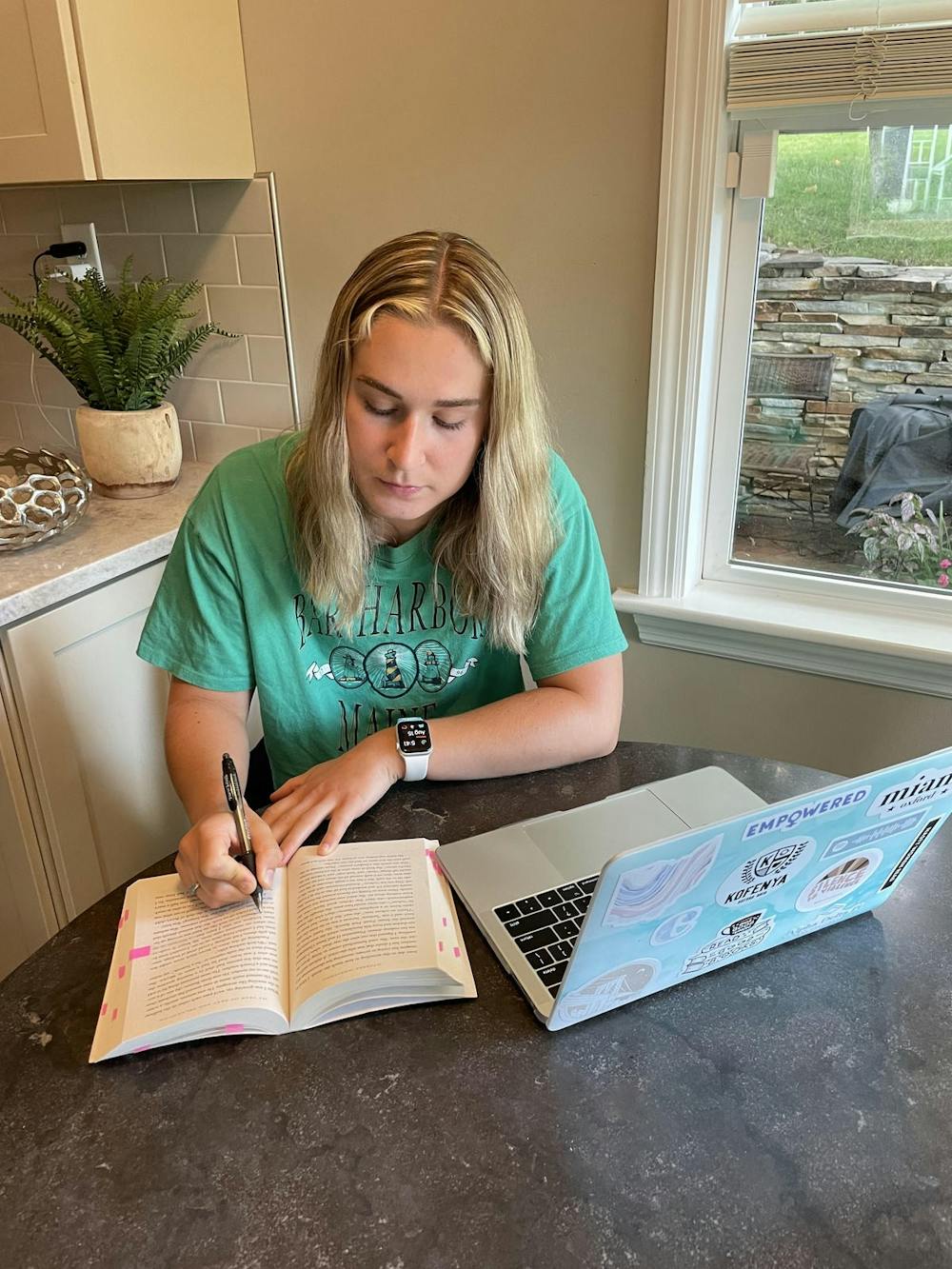Miami University senior Caroline Funk has published multiple short stories exploring various topics surrounding women and their struggles.
Funk is an English literature and creative writing major who plans on pursuing a master’s degree in fine arts for creative writing. She has aspirations of teaching college literature.
Funk defines her stories as being “centered around women who break convention in some way. A lot of them are women who struggle with mental health, depression, OCD or anxiety.”
Her story “Hatchling,” was published in “Sequoia Speaks Magazine,” and addresses issues a woman faces entering the ocean and the memories associated with it.
“Her head floods with an onslaught of images,” Funk said. “She wishes for something simpler than this vicious struggle for survival; dreams of something light, uncomplicated, painless, pictures of the warmth of a nostalgic touch, gives into its effortless weight, rests in the strength of memory.”
Funk’s stories cover a wide range of mental topics women face everyday in the hopes of finding a strong audience that can resonate with its message.
Funk credits Miami faculty as the main reason she decided to publish, as they helped her throughout the process and encouraged her to take the jump into publishing.
“My professors have been really helpful in encouraging me to submit my work for publication,” Funk said. “They sent me links to literary magazines and other publications to reach out to and also helped me edit and revise in a way that is geared towards an audience instead of just writing for myself.”
In talking with Funk, she said she owed much of her success to her mentor, Margret Luongo, associate professor of creative writing.
Luongo first met Caroline when Funk reached out for an undergraduate Summer Scholars program last spring. While the two originally worked together on critical essays for the project, their relationship has continued to grow and foster Funk’s creative writing.
Luongo expressed how much she enjoyed seeing the change within the mentor-mentee relationship.
“I was really gratified to learn that she’s a really excellent creative writer,” Luongo said. “I read more and more of her work, which was really insightful to the interior lives of women with mental health issues.”
Enjoy what you're reading?
Signup for our newsletter
Luongo recounted the hard work Caroline had put into her writing, something she believes shows within the text itself.
“Caroline’s work stands out for its emotional complexity,” Luongo said. “It’s fascinating to imagine what is going on inside other people’s minds. It can provide insight if you’re someone who doesn’t have mental health struggles. It would be, I imagined, really enlightening and empathy-provoking to read some of these stories.”
For Funk, publication was a goal a long time in the making, so she was excited to get her work out there.
“I know as a writer, the end goal is always to not only be published for your own accomplishments,” Funk said, “but just to share with others and know that other people can read your work and appreciate or resonate with it.”
The collection is only the start of what Funk hopes is a successful career of creating meaningful literature for readers.




